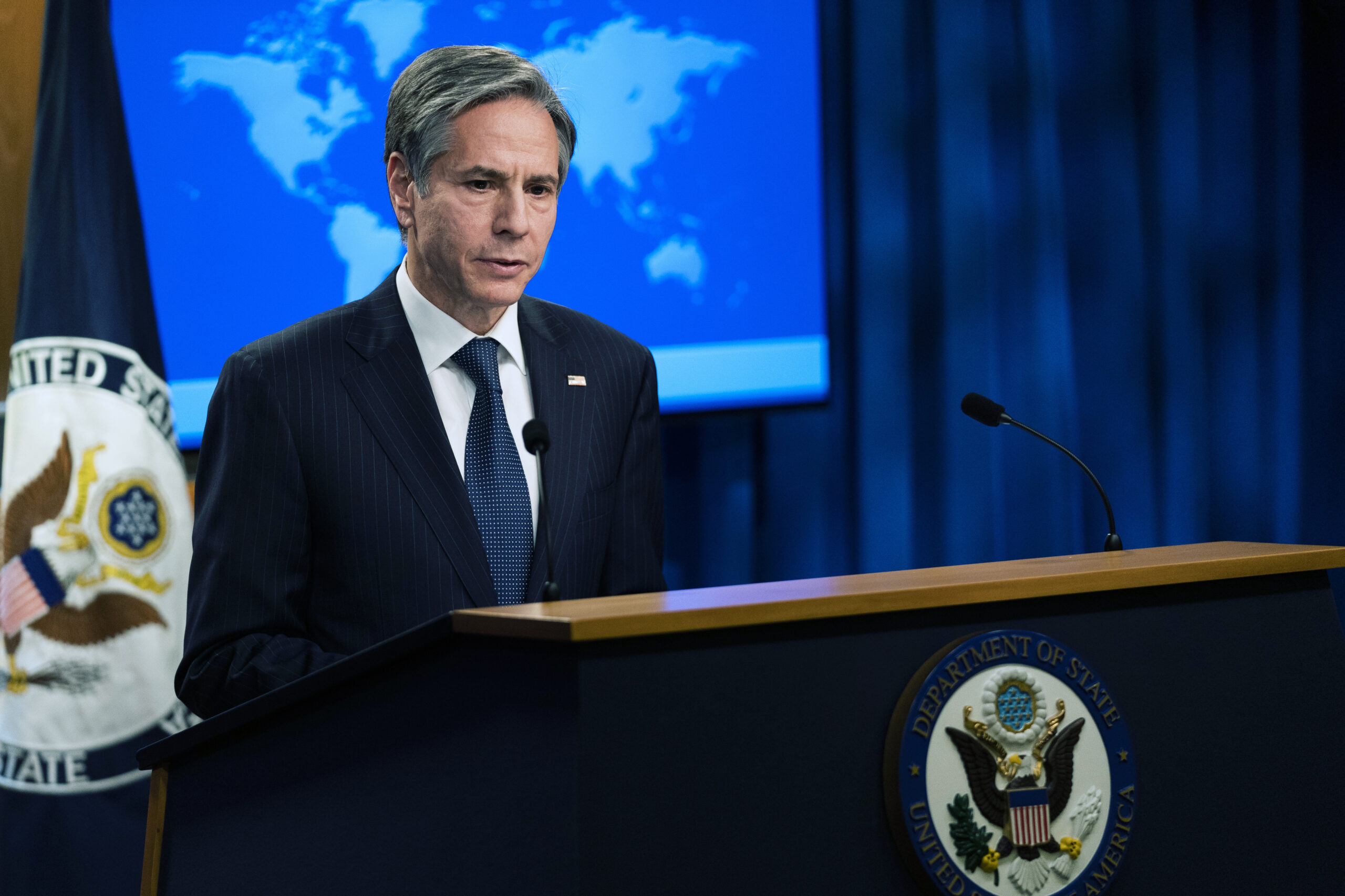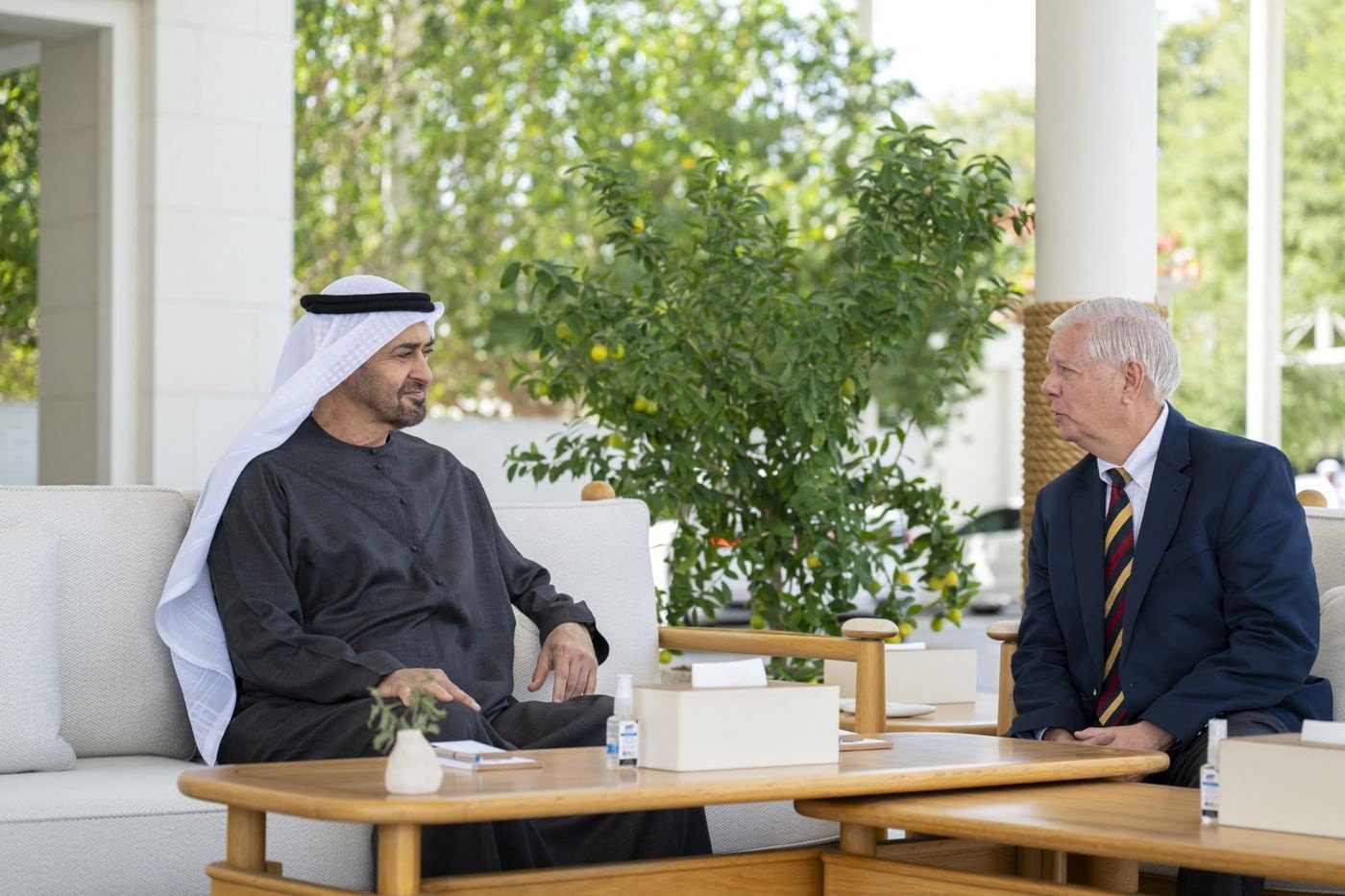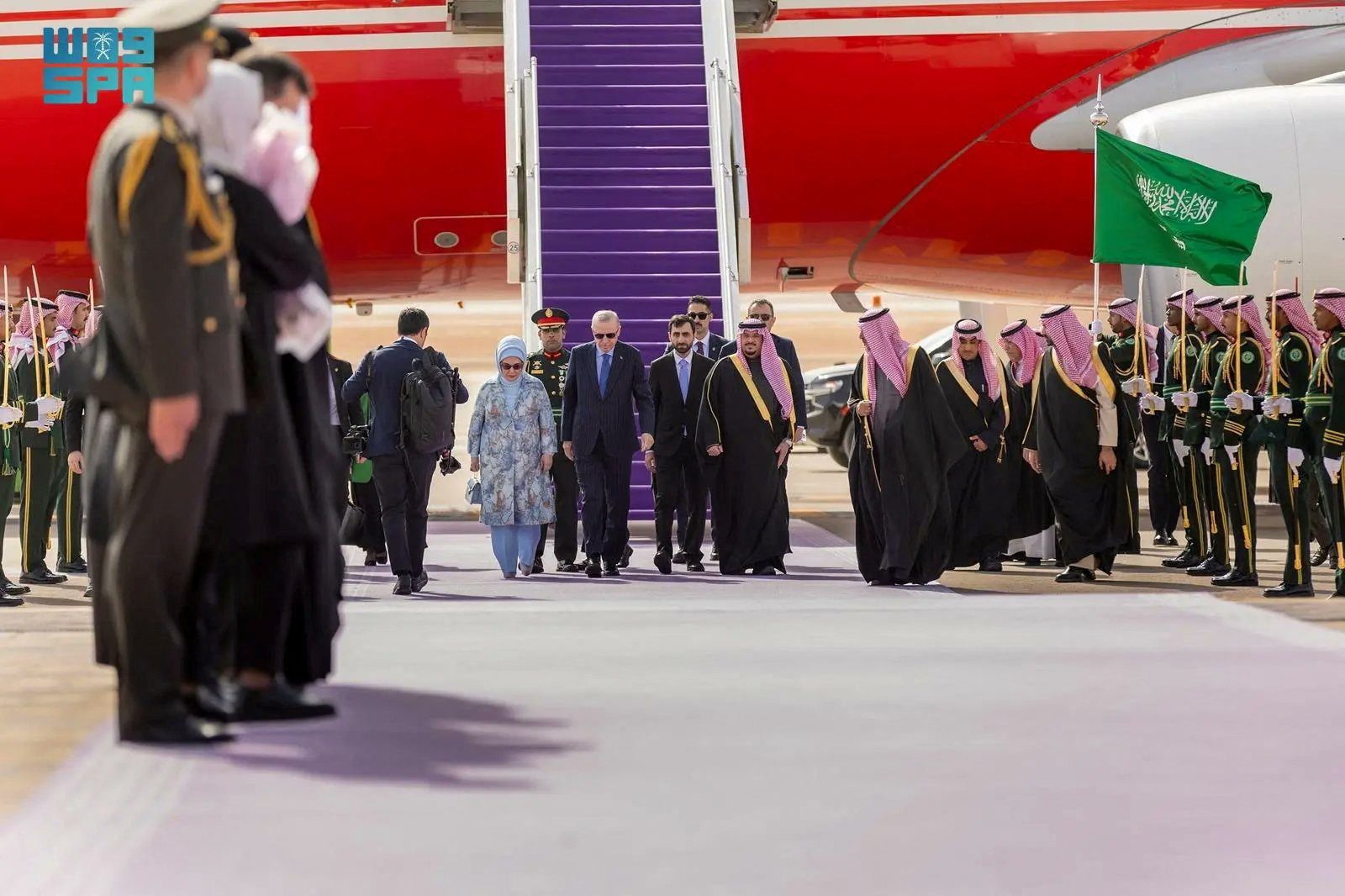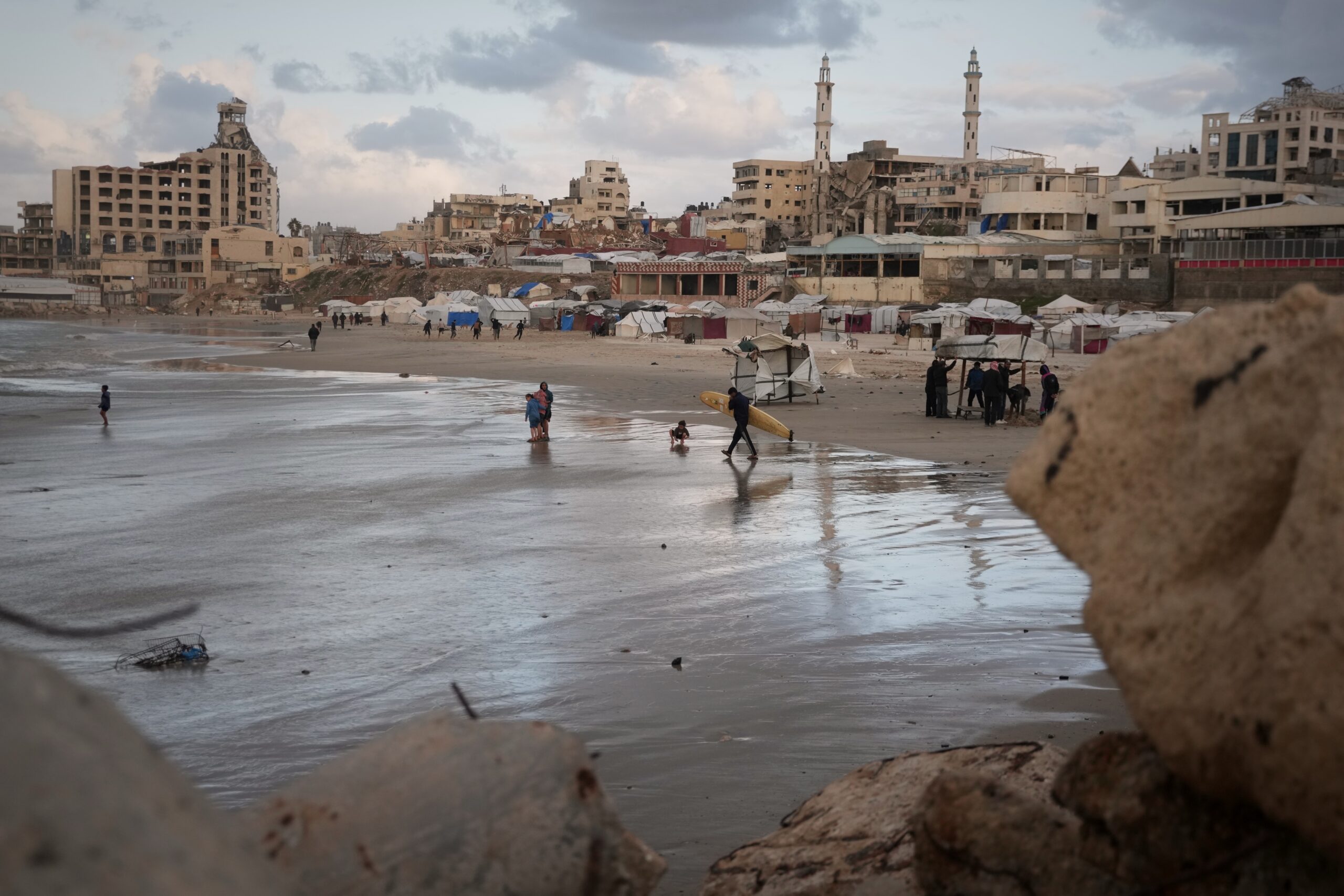Riyadh and Tehran are Both Put on Notice That Biden has a New Mideast Approach
Friend and foe have been informed that Biden won’t accept what Obama and Trump might have.

In his fifth week in office, by drawing clear limits for friend and foe alike, President Joseph R. Biden Jr. began to implement a distinctive approach to the U.S. role in the Middle East. Saudi Arabia suffered the rebuke, but also the important opportunity for reset, from the release of the unclassified summary of U.S. intelligence regarding the 2018 murder of Saudi journalist Jamal Khashoggi. And Washington’s principal antagonist, Iran, got its own unmistakable message through U.S. airstrikes targeting pro-Iranian groups at a highly strategic area on the Syrian-Iraqi border.
In both cases, the message was clear: This isn’t the ninth year of President Barack Obama’s administration, or a fifth year of Donald J. Trump’s presidency. Instead, the Biden administration, with its foreign policy crafted by two Obama veterans – Secretary of State Antony Blinken and National Security Advisor Jake Sullivan – is beginning to validate claims it has learned lessons from past mistakes and has a different, and tougher, approach. These two messages, while very different in most ways, can nonetheless both be summarized as: We are serious about our goals and you need to understand that or there will be consequences.
Intelligence Summary Release Sends Strong Message
The release of the unclassified summary looks like bad news for Saudi Arabia. The report formally reiterates what was clear soon after the murder: The U.S. intelligence community has a strong structural and circumstantial case that the mission to capture or kill Khashoggi was “approved” by Saudi Crown Prince Mohammed bin Salman. Yet there is no new information or anything that contradicts what careful observers have known for years about how the CIA reached this conclusion – most notably, a series of documented communications, although about what is not known, between the crown prince and a key aide widely believed to have been directly responsible.
Still, the report has immediate negative implications for bilateral relations because it publicly confirms the CIA’s conclusions. It again calls attention to the crime against Khashoggi and helps to reinforce the widespread belief that Mohammed bin Salman bears responsibility for the atrocity. The Department of the Treasury imposed new sanctions on some senior Saudi officials. The State Department announced a “Khashoggi Ban,” placing travel restrictions on 76 Saudi nationals accused of involvement in extraterritorial counterdissident activity and urged Riyadh to disband the Rapid Intervention Force implicated in the murder. And a statement by Representative Gregory W. Meeks, chairman of the House Foreign Affairs Committee, suggests that Congress may attempt to strengthen such sanctions or impose additional ones. Additionally, Biden has shifted the focus of presidential outreach to Riyadh. While the Trump administration communicated mainly with the crown prince, Biden has reinstituted diplomatic protocol with his first phone call instead to King Salman bin Abdulaziz, but it remains to be seen if this exclusive relationship can continue for long.
Biden Distinguishes His Approach From Trump’s
Arguably, by withholding this summary from the public, Trump damaged U.S.-Saudi relations and deepened the taint of the crime by casting it in the pall of a cover-up. That ensured that the issue would return to the front pages at least once more, albeit strategically timed for release on a Friday afternoon when news coverage is conveniently attenuated.
The Biden administration is clearly trying to distinguish itself from the Trump administration, especially in the perception of progressive activists and lawmakers – though many of them remain highly dissatisfied. The Biden administration seeks to reverse any sense its predecessor may have created that Washington does not care about the brutal killing of a Washington Post contributing columnist and U.S. permanent resident. The administration will not pretend Khashoggi’s murder didn’t happen or that it has no idea who is responsible, as the Trump administration effectively did. Nor will it continue to conceal unclassified U.S. intelligence about the killing from the public with no evident justification. And there are consequences, however limited.
This is also an effort to clear away the detritus of what Biden’s team regards as Trump’s woeful mishandling of the murder. Trump left the killing, and the unclassified summary, unaddressed meaningfully and therefore a constant irritant. The Biden administration’s moves not only put Riyadh, and specifically Mohammed bin Salman, on notice that such behavior will not be tolerated without a meaningful response, they seek to resolve the murder as a major bilateral issue.
Biden Also Seeks To Move Beyond the Khashoggi Murder
Yet the news is not all bad for Riyadh. These steps are also intended to make way for other U.S. policy goals that will require Saudi cooperation and a workable relationship despite lingering anger among Democrats against both Trump and Riyadh.
The Biden administration’s handling of this matter has been relatively subtle and deft. The sanctions, embarrassment, and condemnation are intended to be effectively proportional to the offense, not in moral terms certainly, but in the muddier context of statecraft and broader U.S. policy goals. The murder cannot be undone, and the administration has important Middle East imperatives.
Goals on Yemen and Iran Require Saudi Cooperation
Biden’s Middle East priorities are clear, not only from statements but also the special envoys he has appointed. Robert Malley is special envoy for Iran and nuclear diplomacy. Timothy A. Lenderking is special envoy for Yemen, seeking to end that devastating war. There are tellingly no special envoys for Israel/Palestine, Syria, Iraq, or other potential policy imperatives. The priorities, obviously, are Iran and Yemen.
That is why clearing the air with Saudi Arabia is at least as important to the Biden administration’s regional policies as it is politically necessary for progressive Democrats. Saudi Arabia is a key player on both these issues, directly in Yemen and indirectly, but crucially, regarding Iran. The intelligence summary release is intended to facilitate that, exactly as Biden implied in the prerelease telephone call with King Salman, which the administration treated as a prerequisite for publicizing the document. Biden specifically mentioned human rights, an issue Trump avoided, but the conversation focused on the mutual importance of an ongoing partnership. This is not mere rhetoric. If these key initiatives are to succeed, a successful reset of the Washington-Riyadh partnership is an indispensable first step.
Biden’s impact on Saudi calculations has been clear since his election victory. The most dramatic response was the resolution of the boycott of Qatar by Saudi Arabia, the United Arab Emirates, Bahrain, and Egypt, which Biden made clear he did not want to inherit from Trump. But it also included the release of political prisoners like women’s rights activist Loujain al-Hathloul, the release pending trial of two dual U.S.-Saudi nationals, and the commuting of harsh sentences of Shia activists. There have even been signs of stepped-up Saudi diplomacy on Yemen, in sync with Biden’s goals. If the initial effort was to influence Saudi conduct, it has already been at least somewhat successful.
Tehran Put on Notice: Obama is NOT Back
Saudi Arabia was not the only Middle Eastern country to receive a strong signal. Iran was put on clear notice that the Biden administration is not going to shy away from confrontation just because it seeks to revive U.S.-Iranian nuclear diplomacy. After two major rocket attacks on U.S. interests in Iraq by pro-Iranian Shia militia groups, on February 25 the Biden administration retaliated by attacking installations controlled by pro-Iranian armed groups in Syria.
The attack was carefully aimed at one of the most strategically sensitive areas in the Middle East, the crossing point for the main highway connecting western Iraq and eastern Syria. From Iran’s point of view, this is probably the most strategically significant real estate on earth far from its own borders. If the Iranians are ever to consolidate a militarily secured “land corridor” running from Iran, through Iraq and Syria, down into Lebanon and the Mediterranean coast, it will require uncontested dominance of precisely that area. That is why the remaining U.S. and allied forces in Syria are concentrated in this zone, which was always exempted from even the most sweeping military withdrawal plans floated by Trump.
When the Biden administration said, following the second major recent provocation in Iraq, which injured five Americans, that it would respond “in a time and place of our choosing,” it was serious. More importantly, the response was directed where it would inflict maximum strategic pain on Iran. Moreover, by striking Syria rather than Iraq, Biden minimized the chances that the retaliation could further inflame the volatile political situation inside Iraq itself. Again, this reaction seems to reflect a significant degree of skill and subtlety.
It also served as a test of the will of the Biden administration, particularly given the perception that the Obama administration was so focused on negotiations with Iran it was willing to tolerate otherwise unacceptable conduct. This perception was cemented not only by hesitation to retaliate against Iranian proxies in Iraq but also when Obama failed to respond to Syrian President Bashar al-Assad’s violation of his chemical weapons use “red line,” in large measure for fear of disrupting the dialogue with Tehran. Many critics of the Obama administration in the United States and the Middle East assumed, derisively, that Biden would repeat this error.
Instead of rushing back into an immediate process with Iran, the Biden administration held off, to Tehran’s frustration. Iranian efforts to press the issue began with threats to end international nuclear inspections and increase nuclear production, the seizing of a South Korean ship and arrest of a U.S. national on espionage charges, and, ultimately, the attacks in Iraq. Biden’s retaliation was followed by an Iranian refusal to attend a European-sponsored meeting with Iran. The U.S.-Iranian game of chicken on resuming negotiations therefore now includes reciprocal acts of violence sandwiched between mutual snubs.
As with the summary release and new sanctions against Saudi Arabia, the retaliation against Iran in Syria is intended to immediately clarify that the Biden approach isn’t a replay of either Obama’s reticence to confront Iran or Trump’s indulgence toward Saudi Arabia. Instead, the twin actions in late February demand that both U.S. partners and antagonists take the new administration seriously on its own terms and quickly develop a keen appreciation for what Biden and his team hope to achieve and are willing to accept from friend and foe alike.
The views represented herein are the author's or speaker's own and do not necessarily reflect the views of AGSI, its staff, or its board of directors.





























